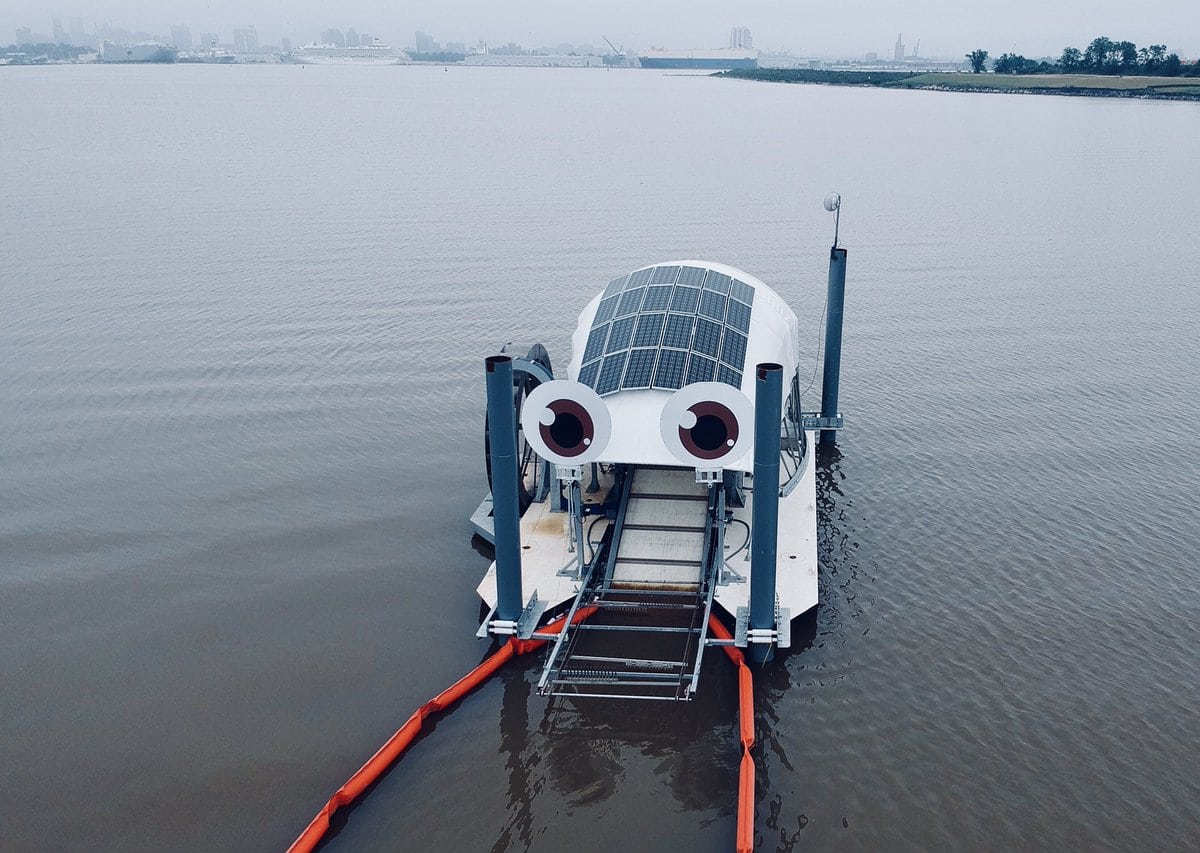The inventor of Baltimore’s much-loved Mr. Trash Wheel is working with the marine unit of Yamaha to develop a new debris-collecting device in coastal Georgia.
Pasadena, Md.-based Clearwater Mills is working with the Yamaha Rightwaters sustainability program and Yamaha Marine on a device that will be designed for use in the Brunswick, Ga., area, said Clearwater Mills President John Kellett, who runs the company that he created after inventing the device with five employees working out of a marina.
It marks an expansion for the trash-collecting concept, which Kellett has long championed as repeatable in other places. In Baltimore, the solar-powered, water wheel that gobbled up dumpsters full of trash debuted at a pollution-filled Inner Harbor outfall, and collected 1,200 tons of debris. It has since sprouted additional companions in Canton (Professor Trash Wheel) and South Baltimore’s Masonville Cove (Captain Trash Wheel). It’s also an international sensation, thanks to googly eyes, lots of press and the What Works Studio-created social media accounts and personality.
“We feel they’re successful both in what they accumulate in the tons of trash they pick up, and they’re also very important from the standpoint of they draw people’s attention to the problem, educate them about the problem and inspire them to become a part of the solution,” said Kellett.
It’s still in the design phase, but the new device will differ in some technical details from Mr. Trash Wheel.
For one, it will be land-based, Kellett said. It will also be electric-powered, which is one area where the work with Yamaha Marine enters the equation, given the company’s work with motors.
“They have some products that they are already making that might be very suitable for integrating into the device,” Kellett said, adding that it’ll still be powered by renewable energy.
Working with Glynn County and the City of Brunswick, the collaborators identified a location where the device can help collect trash in smaller waterways that are polluted before they reach a larger body of water. Like the spots in Baltimore, these are areas that see increased trash when there’s a storm event. The first location was picked to prevent trash from getting into marshland, coastal waterways and beaches.
For the first device, they’re aiming for installation in late spring or early summer of next year.
Kellett has long talked about expanding the Mr. Trash Wheel concept, as he notes that neither Baltimore nor Georgia are among the places with the worst trash problems. He is calling this first device a pilot, and the collaborators hope the project can grow.
“Georgia is home to 1,800 Yamaha employees, and that’s why we have started here,” Martin Peters, Yamaha marine division manager for government relations, said in a statement. “If the pilot project goes well, we’ll work toward finding ways to install similar devices nationally. For us, the end game is cleaner water everywhere.”







